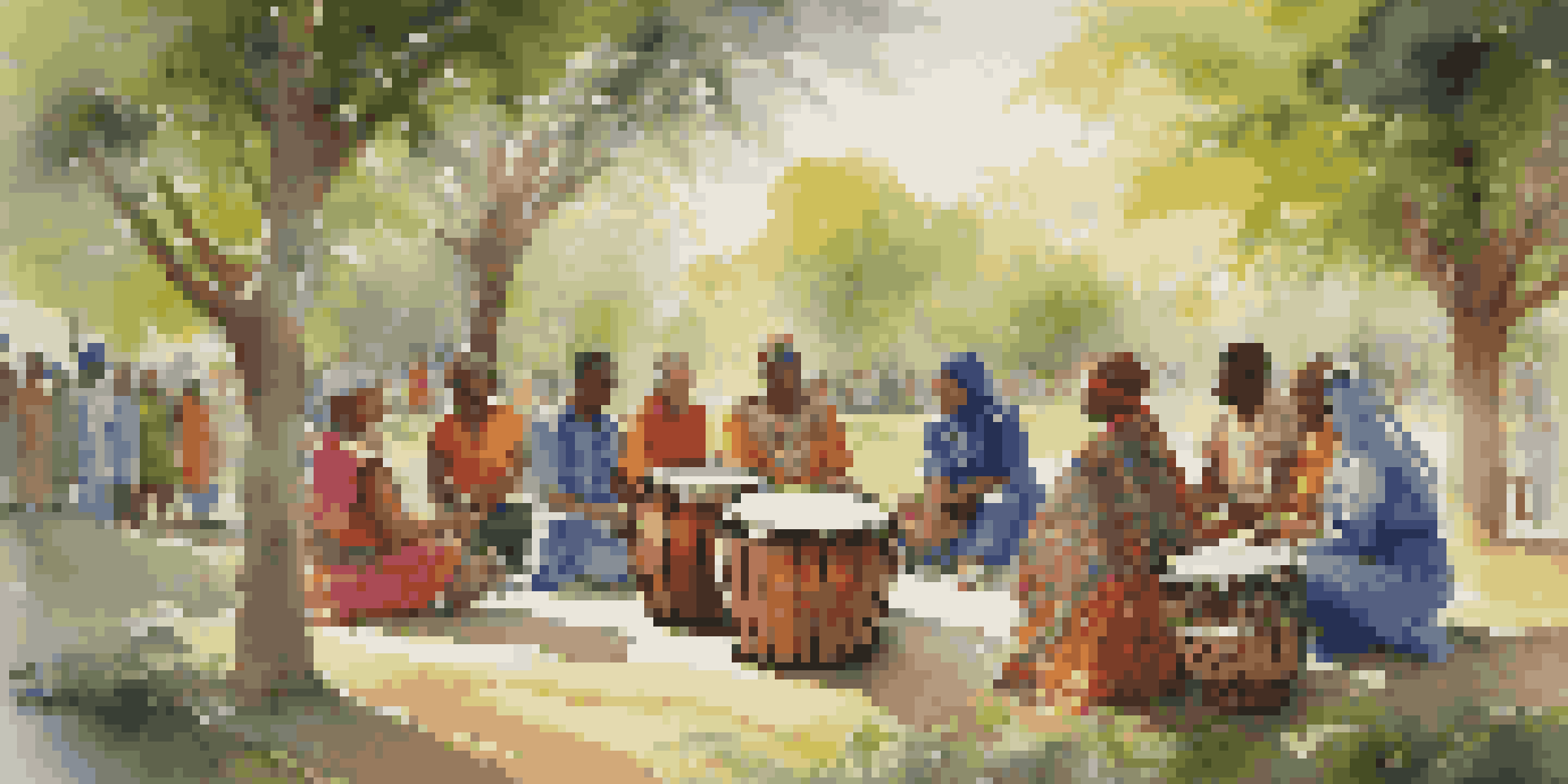The Role of Music in International Peacekeeping Missions

Understanding the Intersection of Music and Peacekeeping
Music has long been a universal language, transcending cultural barriers and fostering connections. In the context of international peacekeeping missions, it serves as a powerful tool to bridge divides among diverse groups. By creating a shared experience, music can promote understanding and harmony, essential for any peacekeeping effort.
Historical Examples of Music in Conflict Resolution
Throughout history, there have been notable examples where music played a significant role in conflict resolution. For instance, during the civil rights movement in the United States, songs became anthems for change and unity. Similarly, in the aftermath of the Rwandan genocide, music helped heal communities and foster reconciliation among survivors.
Music Bridges Cultural Divides
Music serves as a powerful tool in peacekeeping missions, fostering understanding and harmony among diverse groups.
How Music Facilitates Communication Among Troops
In the often tense environments of peacekeeping missions, music can serve as a form of non-verbal communication among troops. It can help build camaraderie and ease stress, allowing soldiers to bond over shared musical tastes. This connection strengthens teamwork, which is crucial for effective operations in challenging situations.
The Role of Local Music in Community Engagement
Engaging with local music can significantly enhance the relationship between peacekeepers and the communities they serve. By participating in local musical traditions, peacekeepers show respect for the culture and values of the people. This not only fosters trust but can also open doors for dialogue and collaboration in conflict resolution.
Local Music Enhances Engagement
Participating in local musical traditions helps peacekeepers build trust and open dialogue with the communities they serve.
Music Therapy as a Tool for Healing
Music therapy has emerged as a vital resource in supporting the mental health of both peacekeepers and local populations. Through therapeutic practices, individuals can express their emotions, process trauma, and find solace in music. This healing aspect aids in rebuilding communities and promoting long-term peace.
Creating a Positive Environment with Music
The presence of music can create a more positive and uplifting environment in often dire situations. By playing music during community events or even in camps, peacekeepers can contribute to a sense of normalcy and joy amidst chaos. This positivity can be contagious, encouraging cooperation and goodwill between parties.
Music Therapy Aids Healing
Music therapy supports the mental health of peacekeepers and local populations, aiding in trauma processing and community rebuilding.
Challenges and Considerations in Using Music
While music can be a powerful tool, there are challenges to consider in its use within peacekeeping missions. Cultural sensitivities must be respected, as what resonates with one group may not with another. Peacekeepers must approach music with awareness and an understanding of the local context to avoid miscommunication or offense.
Future Perspectives: Music in Peacekeeping Missions
Looking ahead, the role of music in peacekeeping missions is likely to grow as more emphasis is placed on holistic approaches to conflict resolution. Innovations in technology, such as music-sharing platforms and virtual collaborations, can enhance this role even further. As the world continues to face complex challenges, music may be an essential ingredient in fostering global peace.